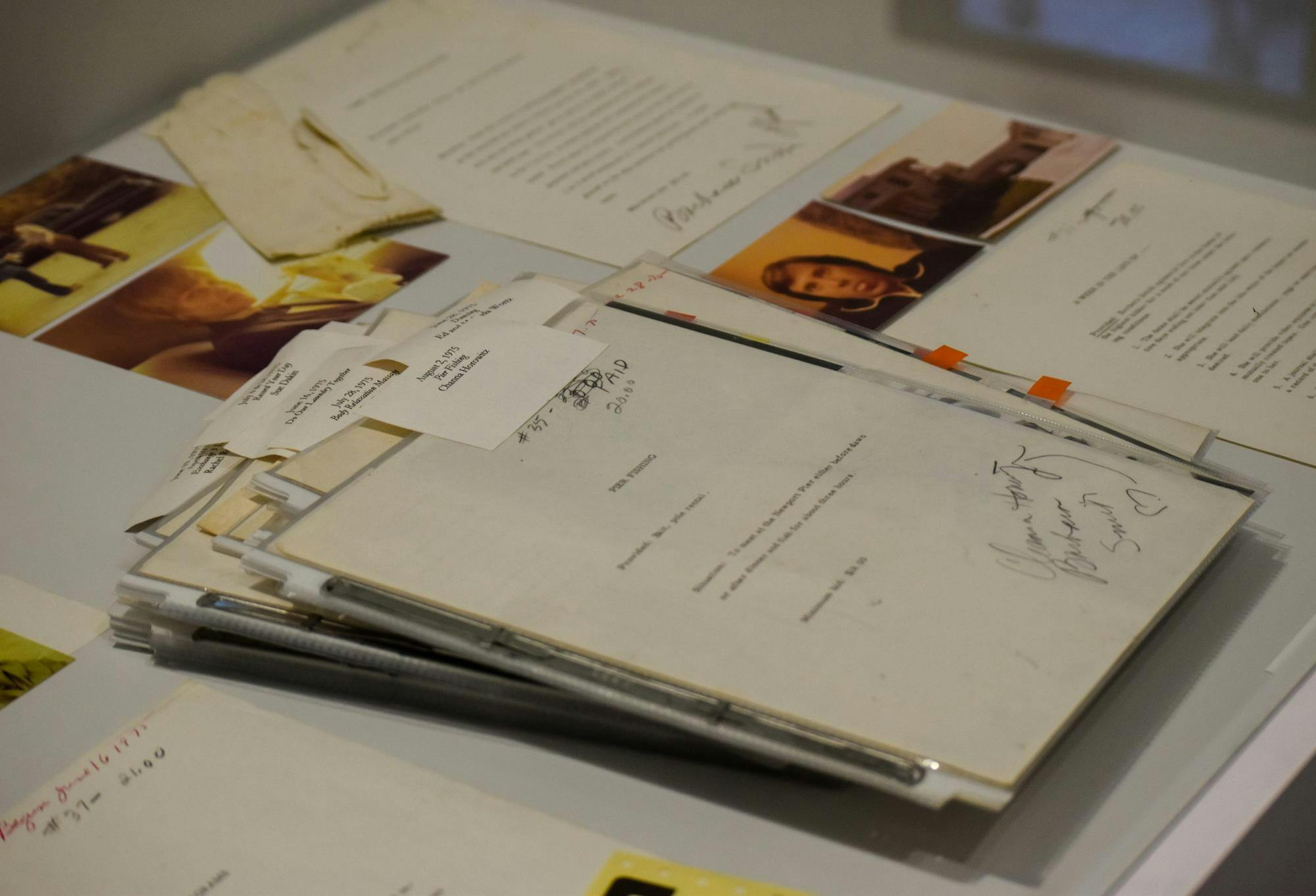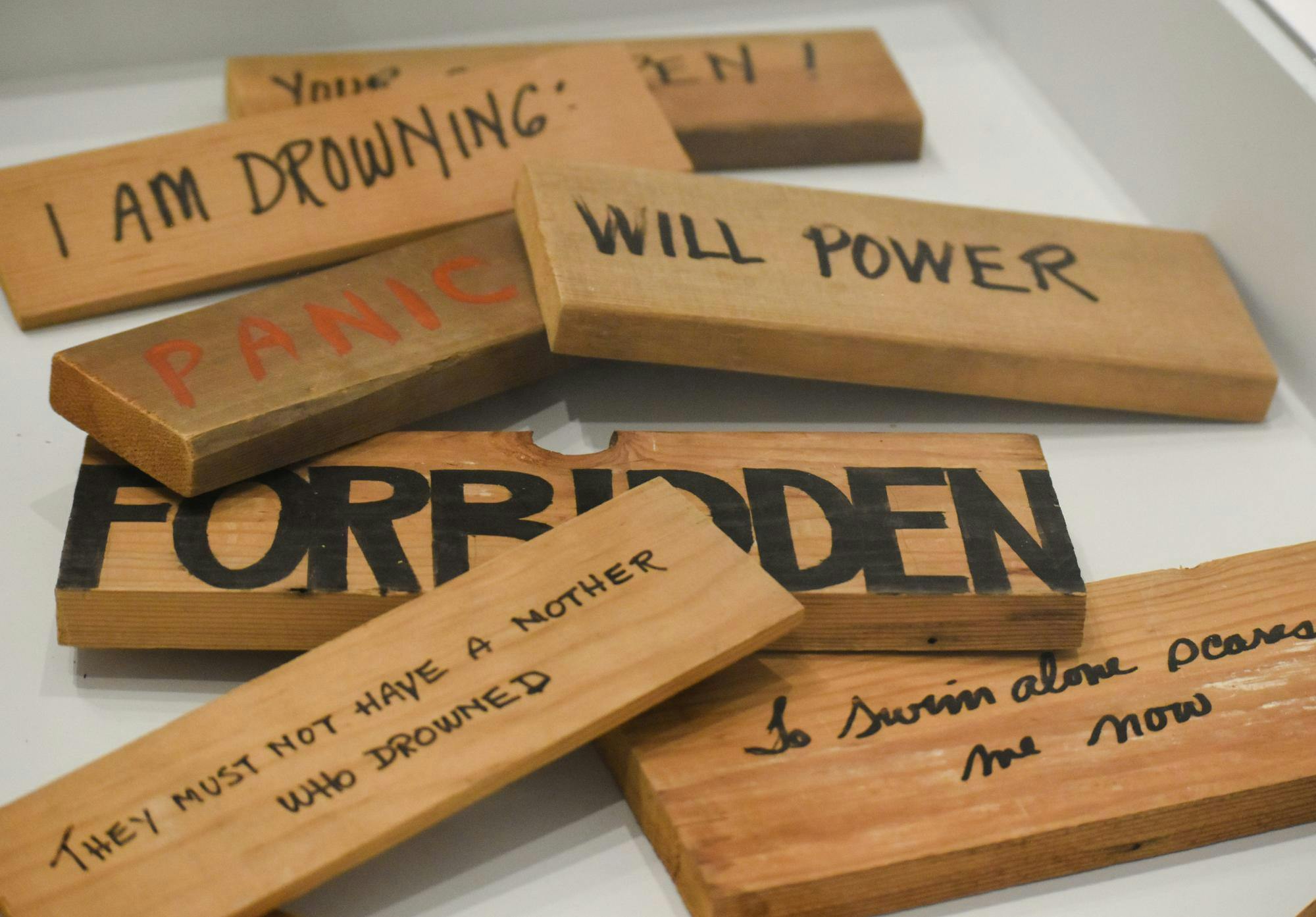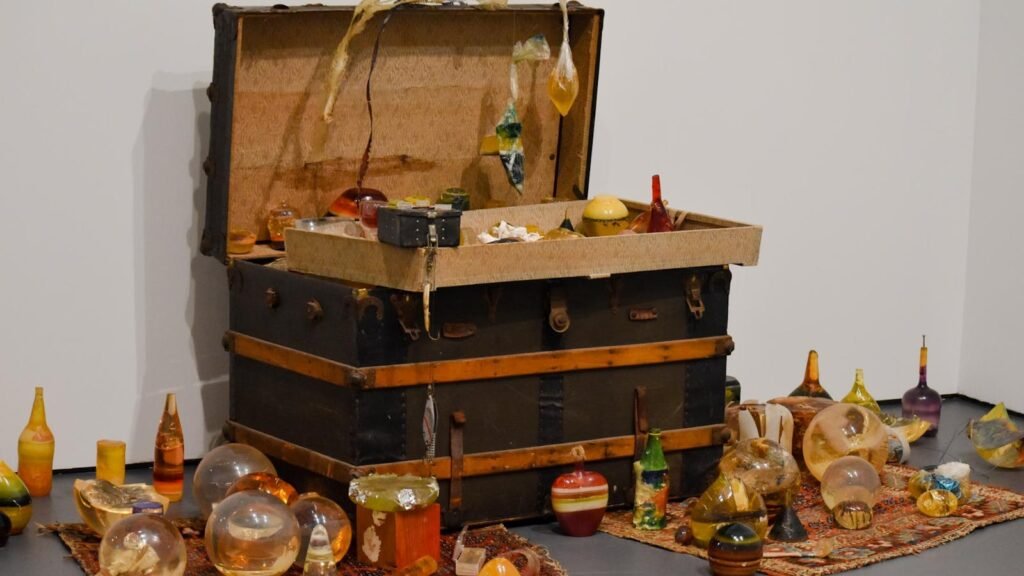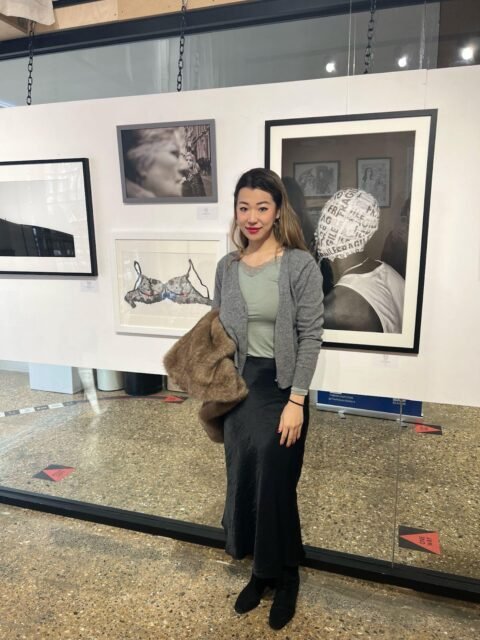The Brown Arts Institute welcomed “Proof,” a touring exhibition showcasing the work of California-based multimedia performance artist Barbara T. Smith, to The David Winton Bell Gallery at the List Art Center on Feb. 22.
The exhibition, which first debuted at the Institute of Contemporary Art in Los Angeles, features several of Smith’s most significant performance works, according to the gallery’s exhibition guide. Each performance is represented through a variety of mediums, including collections of photographs, prints and sculptures, as well as various letters, notebooks and other relics.
Smith’s expansive portfolio spans over 60 years, and includes more than 160 performances. Through radical, interdisciplinary acts, Smith sought to investigate the intersection of what she defines as “real life and performance,” as stated in ICA LA’s exhibition guide. Her work explores themes of gender, sexuality, science, technology, death and aging, and was known for its subversion of expectations and boundaries in these subject areas — especially during the time in which they were created.
Barbara is “someone who was very ahead of her time, working in really intensive art-tech collaborations at a time when that wasn’t happening often in the art world, and especially less often for women artists,” said Thea Quiray Tagle, associate curator of the Bell Gallery and of the Brown Arts Institute and the receiving curator of the exhibit.

Quiray Tagle was tasked with transforming the exhibition to fit not only the Bell Gallery space, but also the broader cultural context of the University and the East Coast — a job, she said, took a lot of time and research.
The biggest challenge was fitting such a large survey exhibition into a smaller gallery space, Quiray Tagle said. Several performances had to be either reduced or cut out completely in order to accommodate the size of the exhibition, and walls were constructed to allow for more space to display the artwork.
The gallery was also arranged chronologically, allowing visitors to explore the progression of Smith’s career. Visitors shared that they enjoyed getting to see how Smith’s work changed over time as they walked through the exhibit.
“It was really cool to see how her work has evolved and compounded,” said Esha Karayi ’24, who visited the exhibit with a friend. “It kind of takes you through her life and evolution as an artist … It’s a really fun exhibit.”
Karayi added that it was especially interesting to see the changes in technology over time — most notably how Smith’s early work utilized Xerox machines while some of her latest photographs were taken on high-definition scanners. She also appreciated Smith’s growth both as an artist and an individual, as the artist developed confidence in her sexuality and spirituality.

“Barbara’s life and the kind of work that she made really pushes against a lot of expectations of women artists and performance artists, at the time and even today,” Quiray Tagle said. She hopes that visitors to the exhibition — which will stay open in the Bell Gallery until June 2 — will bring more recognition to Smith’s incredible body of work.
“Barbara is now in her 90s, but she hasn’t quite gotten the kinds of attention that other women performance artists have had, even from her same generation,” Quiray Tagle said. “That was really exciting for us at The Bell.”

Campbell Loi, a senior staff writer and copy editor for The Herald, is a junior from Syracuse, NY studying Public Health and International and Public Affairs. Outside of academics, she loves all things music and enjoys performing, arranging, and constantly listening to songs in her free time.




